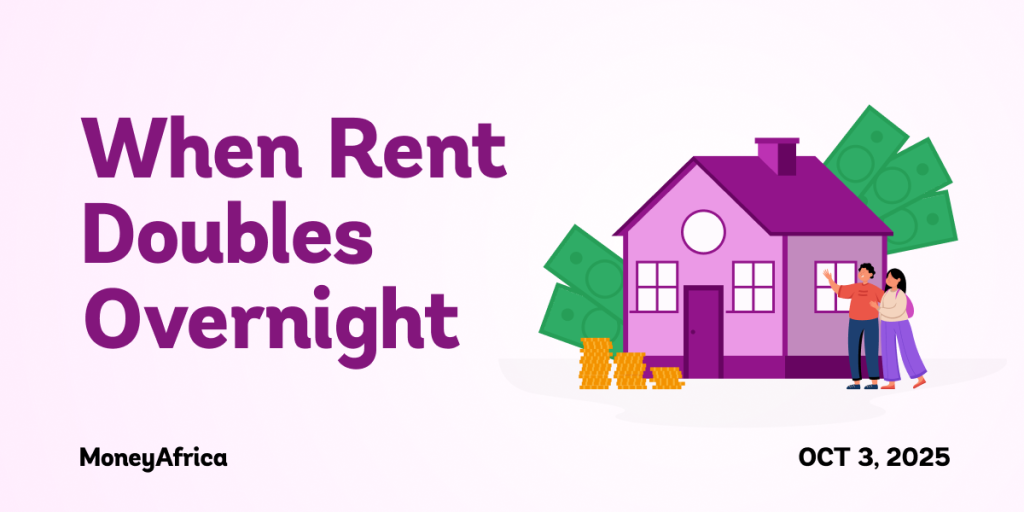Picture this: you’re paying ₦800,000 for a two-bedroom flat. Renewal is coming up, and you’re ready. Then, with no prior notice, your landlord says: “It’s now ₦1.6 million.”
That’s more than double and you didn’t even see it coming.
This is the story many tenants are telling right now. Rents are jumping in ways that shock families, young professionals, and even businesses. In fact, some people have abandoned proper apartments and are now living in shop spaces just to cope.
So here’s the question: Is renting really a waste of money? Or is there a smarter way to approach it?
Is Renting a Waste of Money?
Renting often gets a bad name. People say: “You’re just pouring money down the drain.” But that’s not true.
When you rent, you’re paying for:
- Flexibility – you can move if your job changes, traffic becomes unbearable, or the environment no longer suits you.
- Less responsibility – repairs, heavy maintenance, and property taxes are on the landlord, not you.
- Freedom from huge debt – no massive mortgage hanging over your head.
Yes, owning a house is a long-term dream. But with the high cost of land, interest rates, and hidden ownership expenses, rushing into ownership right now can leave you house-rich but cash-poor.
Why Rents Are Rising
Understanding why rents are climbing helps you respond better:
- Inflation: Building materials, labour, and land costs have all gone up.
- High demand, limited supply: More people are moving into urban areas, but new affordable housing is not keeping pace.
- Speculation: Some landlords simply see rent as their own “inflation hedge”—raising it to protect their income, regardless of tenants’ struggles.
- Weak regulation: Even with new draft laws, there’s still no strong control on how high rent can go.
What You Can Do
- Plan ahead: Don’t wait until the week your rent expires. Speak to your landlord months before. Suggest gradual increases instead of one painful jump.
- Save for the inevitable: Create a Rent Buffer Fund. Put aside 20–30% more than your current rent every month. If your ₦800k suddenly jumps to ₦1.2m or ₦1.5m, you’ll have a cushion.
- Cut the load: Share space with a trusted roommate or rent out unused rooms. Even ₦50,000–₦100,000 extra a month from subletting can ease the pressure.
- Explore nearby locations: Moving just a little farther can mean huge savings. A flat in Ikoyi might cost ₦6m, Lekki Phase 1 ₦3m, but go a bit further down you’ll find similar spaces for less than half that. Sometimes the extra commute saves you millions.
- Know your rights: The new tenancy bill includes limits on agent fees, allows tenants to pay monthly or quarterly, and gives you the option to challenge unreasonable hikes in court. Many tenants don’t even know this, don’t let ignorance cost you.
- Grow your income: The best defense against rising costs is more earnings. A side hustle, freelance work, or upskilling can help ensure your rent doesn’t swallow your entire salary.
Key Takeaway:
Renting is not wasted money. It’s shelter, peace of mind, and freedom. The danger comes when you’re unprepared for sudden increases.
Landlords will raise rents. But with planning, saving, exploring better options, and staying informed, you can stay one step ahead.

